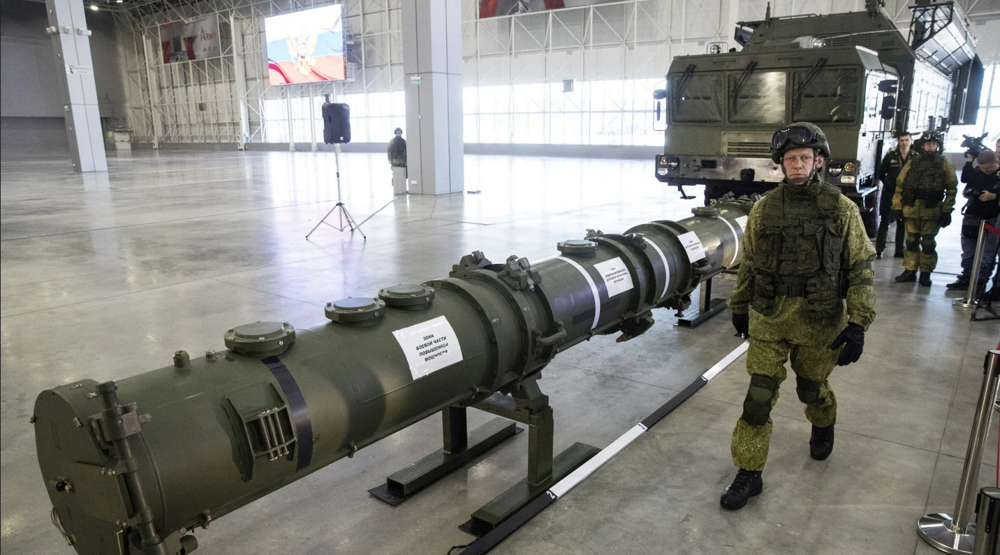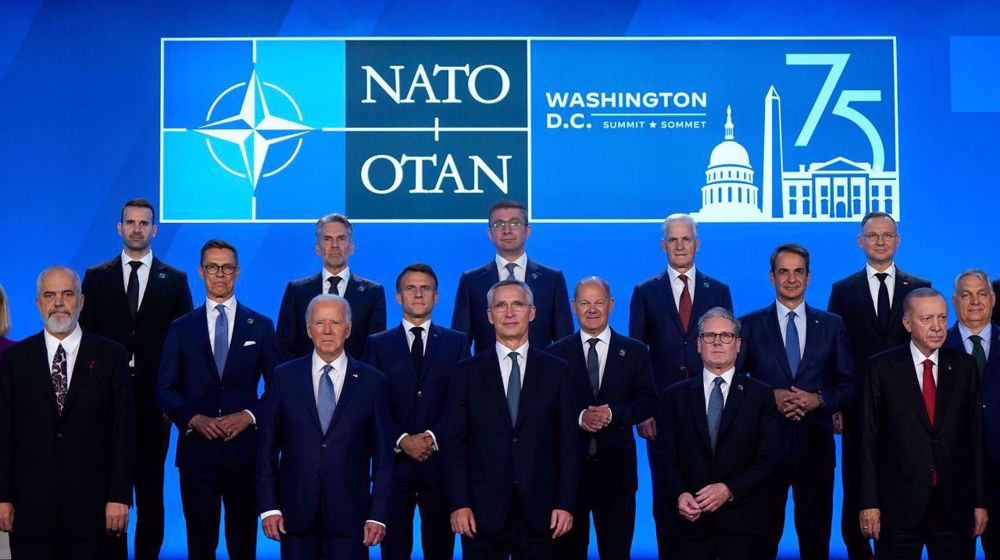US plan to deploy missiles in Germany sparks outcry, Russian warning
The US plan to deploy long-range missiles in Germany has sparked outcry from German parties, with Russia pledging to counter it.
On Wednesday, Washington and Berlin declared their intention to deploy long-range firepower in Germany starting in 2026.
The agreement includes deploying capabilities from 2026, such as SM-6, Tomahawk, and advanced hypersonic weapons with greater range than those possessed by European powers.
This would be the first time since the Cold War that the European continent became home to the most potent US weapons.
The Alternative for Germany (AfD) far-right party, which is against German weapons deliveries to Ukraine, warned that Washington’s missile decision made “Germany a target.”
“Chancellor Olaf Scholz is not acting in Germany’s interest,” said AfD leader Tino Chrupalla. “He is allowing Germany’s relationship with Russia to be permanently damaged and we are falling back into the pattern of the East-West conflict.”
The leftist Die Linke party also denounced the missile move “highly problematic”, saying it could cause a fresh arms race under the cover of so-called deterrence.
Sahra Wagenknecht, leader of the Sahra Wagenknecht Alliance political party, better known as BSW, condemned the missile deal as “highly dangerous.”
The most intense reaction came from the Kremlin which vowed to give a response to the missile plan.
“The North Atlantic alliance has once again very clearly confirmed its essence. It is an alliance created in an era of confrontation with the aim of maintaining confrontation. Tensions on the European continent are escalating” as a result, said Kremlin spokesman Dmitry Peskov
He added that Moscow was watching as NATO's military infrastructure crept closer.
“We see the decisions taken in NATO to create separate logistics hubs in Black Sea cities, the opening of additional facilities in Europe, and we see that in fact NATO's military infrastructure is constantly and incrementally moving towards our borders,” Peskov said.
“This obliges us to analyze very deeply the decisions taken in the discussion that took place. This is a very serious threat to the national security of our country. All of this will require us to take thoughtful, coordinated, effective responses to deter NATO, to counteract NATO,” he added.
Deputy Russian Foreign Minister Sergei Ryabkov stressed that Russia had anticipated the US-German missile move, slamming the move as being designed to frighten Russia.
He said the provocative plan destabilizes regional security and strategic relations.
“The necessary work on the preparation of balancing countermeasures by the relevant Russian state agencies was started well in advance and is being carried out on a systematic basis,” Ryabkov said in a statement on his ministry’s website.
“Without nerves, without emotions, we will develop a military response, first of all, to this new game,” he stressed.
This is while Scholz praised the deal as a means to help “securing peace.”
It is “something of deterrence and it’s securing peace, and it is a necessary and important decision at the right time,” the German leader stressed.
“We have long been grappling with the question of how we can ensure a deterrent that secures our own alliance territory, but also Germany, with conventional options,” Scholz further told reporters in Washington.
He added that the decision had been in the works for quite some time and came as expected to those involved in security and peace policy.
Nils Schmid, a spokesperson for Scholz's Social Democrats, said, "This is a necessary step to deter Russia.”
Since Russia launched its “special military operation” in Ukraine in February 2022, Kiev has become far and away the top recipient of US weapons.
The US alone has provided approximately $51.4 billion in military assistance to Kiev, the US State Department said in early July.
In a speech to NATO leaders on Wednesday US President Joe Biden announced plans to supply new patriot missile batteries to Ukraine, as Russia intensifies its military campaign against its neighboring country.
Moscow has time and again warned that the West's military support of Ukraine will only prolong the war.
Azerbaijan president meets top Israeli lobby group leadership during visit to US
Israeli settlers kill 19-year-old Palestinian man in West Bank raid
Israel installed, managed security system at Barak-Epstein New York flat: Report
Iran deplores Israel’s new land grab scheme in West Bank
VIDEO | Vienna holds conference dubbed 'Iranian-Islamic Civilization, Identity and Historical Splendor'
VIDEO | Press TV's news headlines
Journalist Tucker Carlson says he was detained in occupied territories after interview with US amb.
VIDEO | Is there any hope for Russia-Germany relations?











 This makes it easy to access the Press TV website
This makes it easy to access the Press TV website